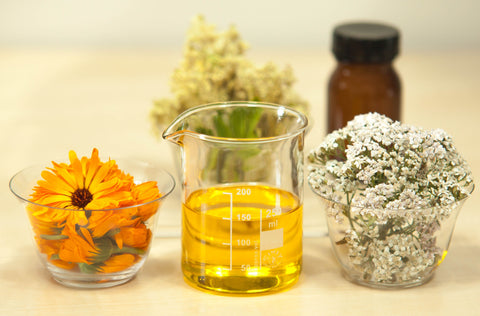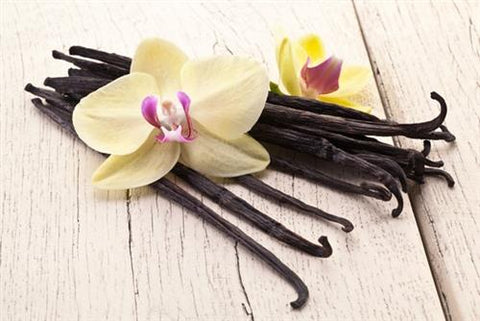While the word might be new to you, enfleurage is one of the oldest methods of extracting aromatic oils from plants. These days, steam distillation is the most common process, with some other interesting techniques being developed such as Expression, or CO2 Extraction. Enfleurage, however, is where essential oils began.

The process starts with purified - traditionally animal - fats. It's more common now to find the process using plant based oils and fats, such as vegetable or palm oil. The fat is placed on glass frames and the plant to be process is placed in the oil, between the glass, for days at a time. Depending on the plant or flower to be processed, they may remove and replace the plant to build up a higher density of oil. Once the fats have absorbed enough of the aromatic oils, the fats can be dissolved by being mixed with alcohol. Once the alcohol is evaporated, the aromatic oils are left behind and able to be used in almost all the same ways as steam distilled essential oils.
It is obviously a more labour intensive process, so it makes sense that it has generally been replaced by some newer methods. However, some plants and flowers simply cannot stand up to the other extraction processes and fragrance oils are more likely to cause allergy reactions and irritations. Enfleurage does have it's limitations in that the resulting oil is more challenging to mix with other oils, sometimes leaving a foggy transparency, but the quality of oil that can be extracted from more delicate plants and flowers is absolutely worth the extra effort to source these kinds of oils.

When we found a version of vanilla oil made specifically from this method, we had to bring it in! Vanilla is a tricky oil to make as there is little actual oil in the beans to pull out, but enfleurage is the perfect method for extracting those warm, rich notes from vanilla beans and making them available for you to use!


